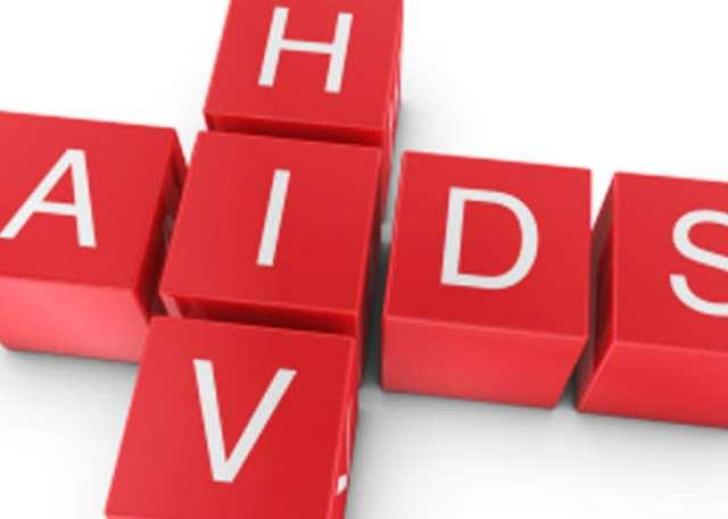News / National
Zimbabwe govt decries resurgent new HIV infections
6 hrs ago | Views

Zimbabwe recorded 15,400 new HIV infections in 2023, with over 9,000 cases among women, underscoring the disproportionate impact of the pandemic on women and girls. Health and Child Care Minister Dr. Douglas Mombeshora revealed these statistics during World AIDS Day commemorations held yesterday in Rusape, Manicaland Province.
"Although new infections have overall dropped, women continue to bear the brunt of the pandemic. Of the 15,400 new infections recorded last year, women accounted for 9,200 of them," Dr. Mombeshora said.
Adolescent girls and young women remain particularly vulnerable, with 1,500 of the 1,700 new infections among adolescents in 2023 being female. Gender inequalities and socio-economic vulnerabilities were cited as the main drivers of these trends.
To address these challenges, the government, in collaboration with the National Aids Council (NAC) and development partners, has intensified high-impact prevention interventions. These include the promotion of female condoms and programs such as DREAMS, Sista 2 Sista, and various gender-transformative initiatives aimed at eradicating child pregnancies and marriages while keeping girls in school.
Male engagement initiatives, such as the Brotha2Brotha program, have also been scaled up to support men's health and their role in preventing HIV and supporting women and children.
NAC Chief Executive Officer Dr. Bernard Madzima stressed the importance of community involvement in curbing infections and reducing AIDS-related deaths.
"Despite achieving the 95-95-95 targets, we recorded over 15,000 new infections and 17,000 AIDS-related deaths in 2023. This serves as a stark reminder that the epidemic remains vicious," said Dr. Madzima.
NAC and its partners are working to integrate HIV response efforts with other health challenges such as tuberculosis, non-communicable diseases, mental health issues, and drug use.
UN Resident and Humanitarian Coordinator Edward Kallon emphasized the importance of human rights in the fight against HIV, particularly during the ongoing 16 Days of Activism Against Gender-Based Violence.
"Young women in Zimbabwe account for 21.8% of new infections due to gender-based violence and early marriages. Marginalized groups contribute 15.8% of infections, underscoring the need for nuanced responses," Mr. Kallon said.
He urged global and national solidarity in addressing stigma and discrimination, which affects nearly 70% of those living with HIV.
The government and its partners remain committed to scaling up prevention and treatment services to achieve epidemic control. The integration of health interventions and a rights-based approach are seen as critical to safeguarding the health and futures of those most affected by HIV.
By ensuring access to services for vulnerable groups, including adolescent girls, young women, and marginalized populations, Zimbabwe aims to prevent millions of new infections and secure a healthier future for all.
"Although new infections have overall dropped, women continue to bear the brunt of the pandemic. Of the 15,400 new infections recorded last year, women accounted for 9,200 of them," Dr. Mombeshora said.
Adolescent girls and young women remain particularly vulnerable, with 1,500 of the 1,700 new infections among adolescents in 2023 being female. Gender inequalities and socio-economic vulnerabilities were cited as the main drivers of these trends.
To address these challenges, the government, in collaboration with the National Aids Council (NAC) and development partners, has intensified high-impact prevention interventions. These include the promotion of female condoms and programs such as DREAMS, Sista 2 Sista, and various gender-transformative initiatives aimed at eradicating child pregnancies and marriages while keeping girls in school.
Male engagement initiatives, such as the Brotha2Brotha program, have also been scaled up to support men's health and their role in preventing HIV and supporting women and children.
NAC Chief Executive Officer Dr. Bernard Madzima stressed the importance of community involvement in curbing infections and reducing AIDS-related deaths.
"Despite achieving the 95-95-95 targets, we recorded over 15,000 new infections and 17,000 AIDS-related deaths in 2023. This serves as a stark reminder that the epidemic remains vicious," said Dr. Madzima.
NAC and its partners are working to integrate HIV response efforts with other health challenges such as tuberculosis, non-communicable diseases, mental health issues, and drug use.
UN Resident and Humanitarian Coordinator Edward Kallon emphasized the importance of human rights in the fight against HIV, particularly during the ongoing 16 Days of Activism Against Gender-Based Violence.
"Young women in Zimbabwe account for 21.8% of new infections due to gender-based violence and early marriages. Marginalized groups contribute 15.8% of infections, underscoring the need for nuanced responses," Mr. Kallon said.
He urged global and national solidarity in addressing stigma and discrimination, which affects nearly 70% of those living with HIV.
The government and its partners remain committed to scaling up prevention and treatment services to achieve epidemic control. The integration of health interventions and a rights-based approach are seen as critical to safeguarding the health and futures of those most affected by HIV.
By ensuring access to services for vulnerable groups, including adolescent girls, young women, and marginalized populations, Zimbabwe aims to prevent millions of new infections and secure a healthier future for all.
Source - The Herald





































